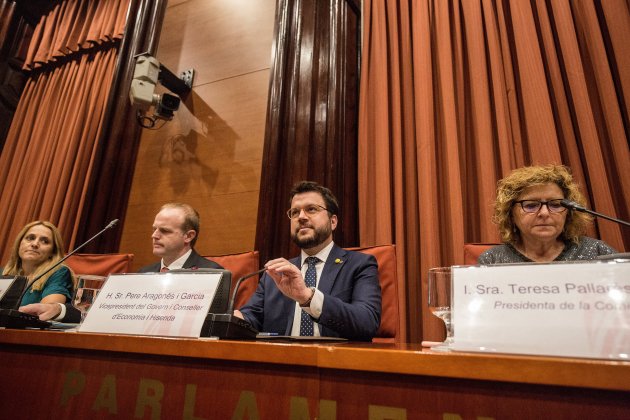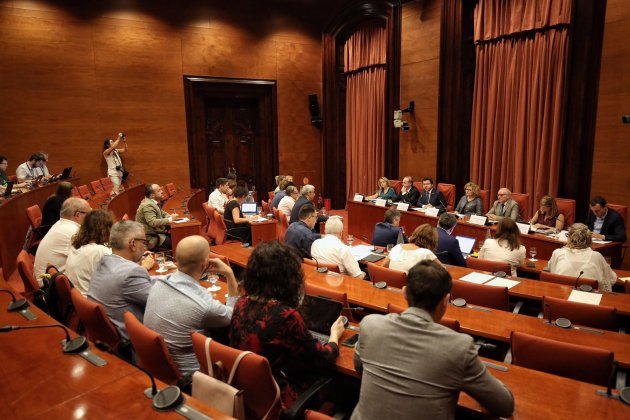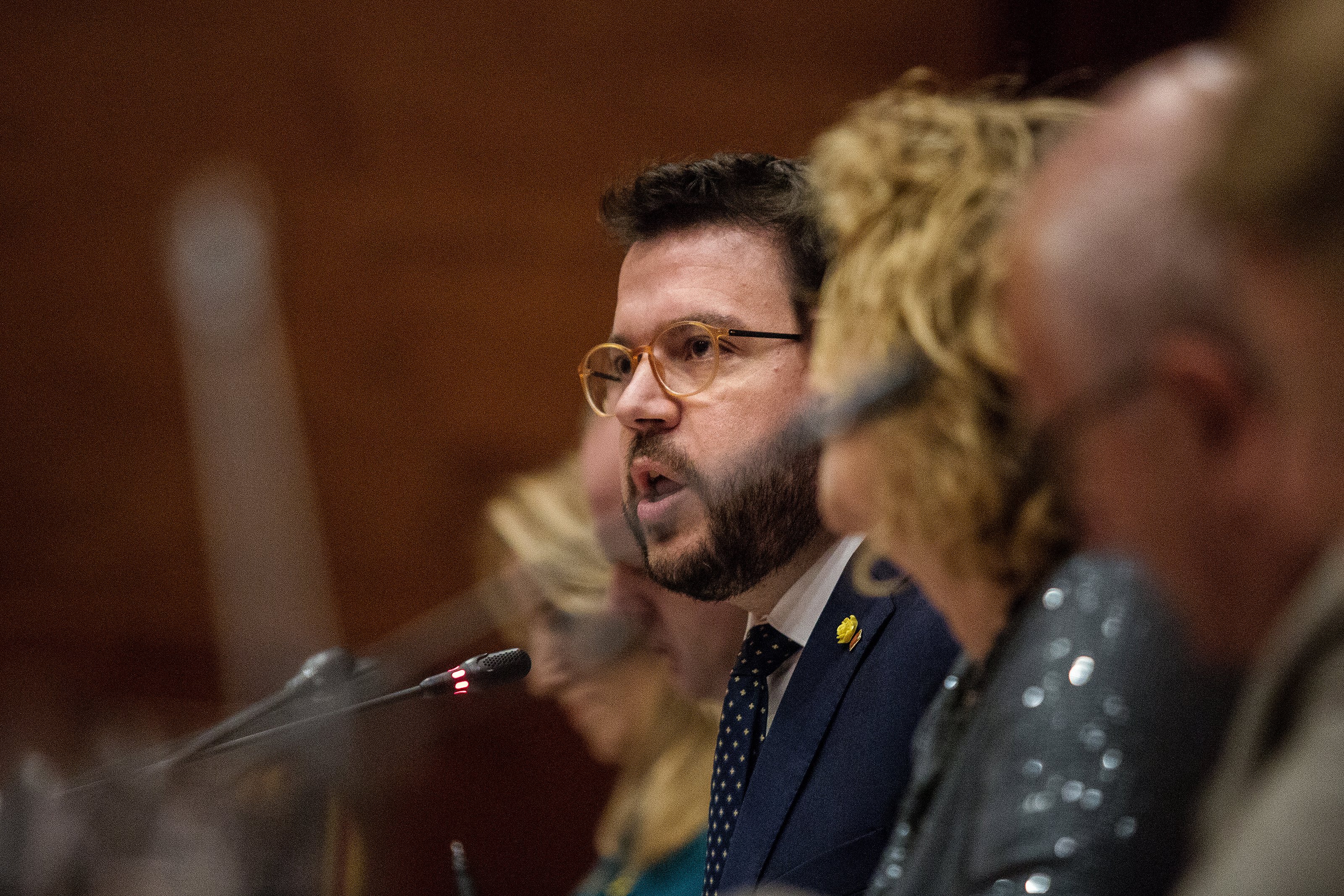Catalan vice-president and economy minister Pere Aragonès has this Wednesday announced that the Catalan government will take its Spanish counterpart to court over outstanding payments. He was speaking to the Catalan Parliament's economy commission, where he appeared at the request of En Comú and CUP to explain his department's approval of a 6% budget cut.
Aragonès said that he will ask the government next week to present an appeal to claim its 2019 funding advance, with 874 million euros outstanding (£800 million; $970 million). Madrid says it hasn't done this yet because it is only an acting government. The money, according to the vice-president, "is ours, it belongs to us by law and it's being irregularly withheld from us".
The vice-president said that the appeal is not for "alms", but for money that corresponds to Spain's autonomous communities by the "strict application of the law", and that Catalonia isn't the only one affected. "It's money that's already been collected, that we've already paid and that's already in the government's coffers," he said.
Based on this argument, he encouraged Spain's other autonomous communities to denounce the central government too and expressed willingness to do it together. "It cannot be that the Spanish government can not follow the law when it wants to. That's over," he said.

The vice-president emphasised that it wasn't just this debt from this year that was outstanding. The Spanish government in total, he said, owes Catalonia more than 1.3 billion euros (£1.2 billion; $1.4 billion).
Aragonès also used the appearance to announce that he will start a new series of talks to negotiate the 2020 budget in the first week of September.
Opposition critical in response
The opposition parties all had criticism for Aragonès. His comments were described, for example, as being populist or electioneering.
For Ciudadanos, deputy José Maria Cano said that the rhetoric of "Spain is robbing us" is nationalist and populist, accusing the vice-president of being "selfish". He also asked Aragonès what expenses the government has relating to the independence process, saying that if they were eliminated there then wouldn't be a need for spending cuts.
Alícia Romero, from PSC, criticised the vice-president for "judicialising politics" and closing the door to dialogue with this new action. She also criticised the Catalan government for not attending meetings of the autonomous communities' fiscal and financial policy council and lamented that it hasn't yet presented a 2019 budget. This was all evidence, she said, of a "disjointed" and "destabilised" government, and called for a new Catalan election.
En Comú, the party who, along with CUP, called for today's appearance, said Aragonès had given a speech more appropriate for a candidate for a future Catalan election than for a current economy minister and accused him of counting seats instead of euros. Deputy David Cid talked of a need to set up a new funding system for Spain's autonomous communities but accused the minister of a lack of transparency.

CUP's Maria Sirvent, meanwhile, said that taking the state to court is the action of a "subordinate government", calling for him to instead "stand up to them".
Finally, PP deputy Alejandro Fernández accused Aragonès of "pulling the suffocating theory from his sleeve" and asked him, jokingly, why his party abstained in the investiture of "the government of the suffocator", referring to Pedro Sánchez.

